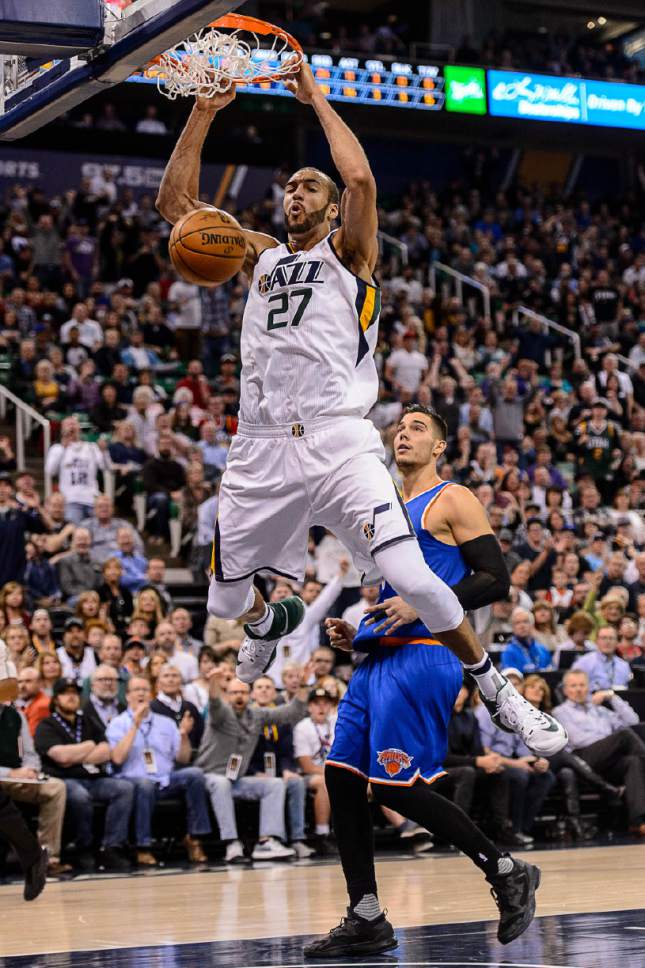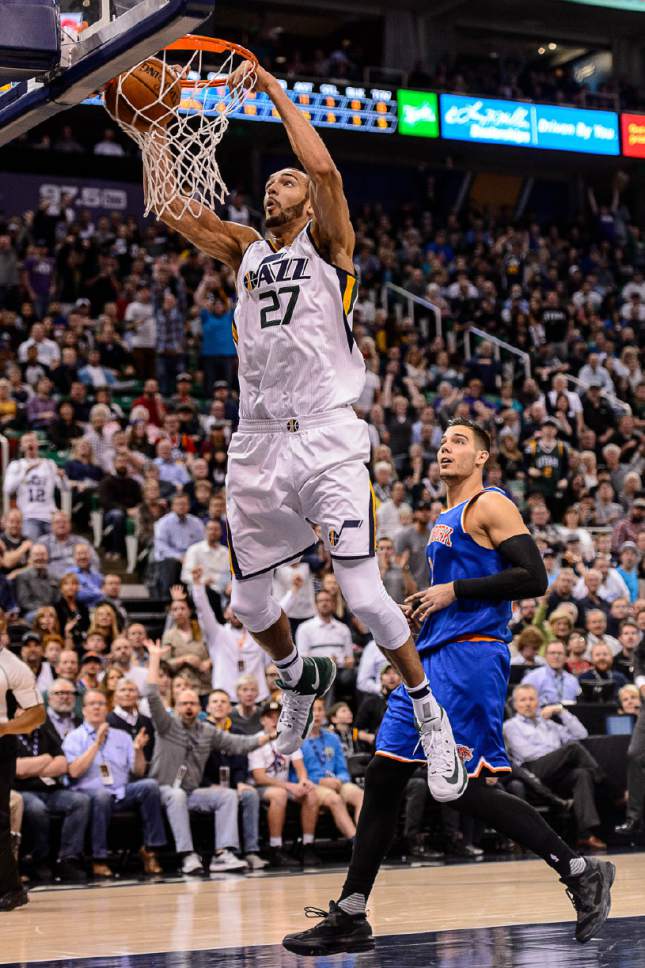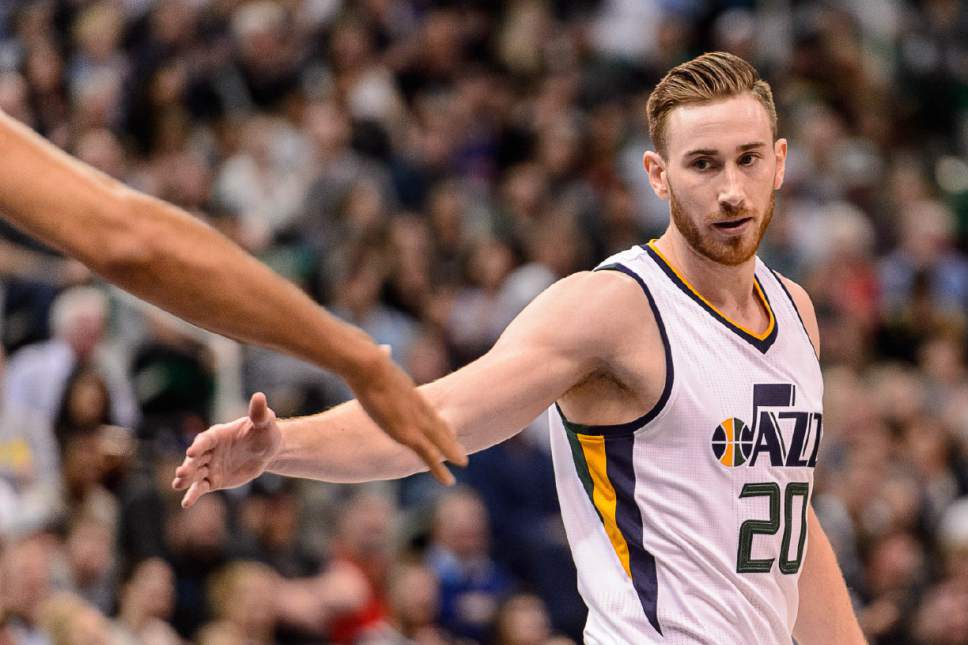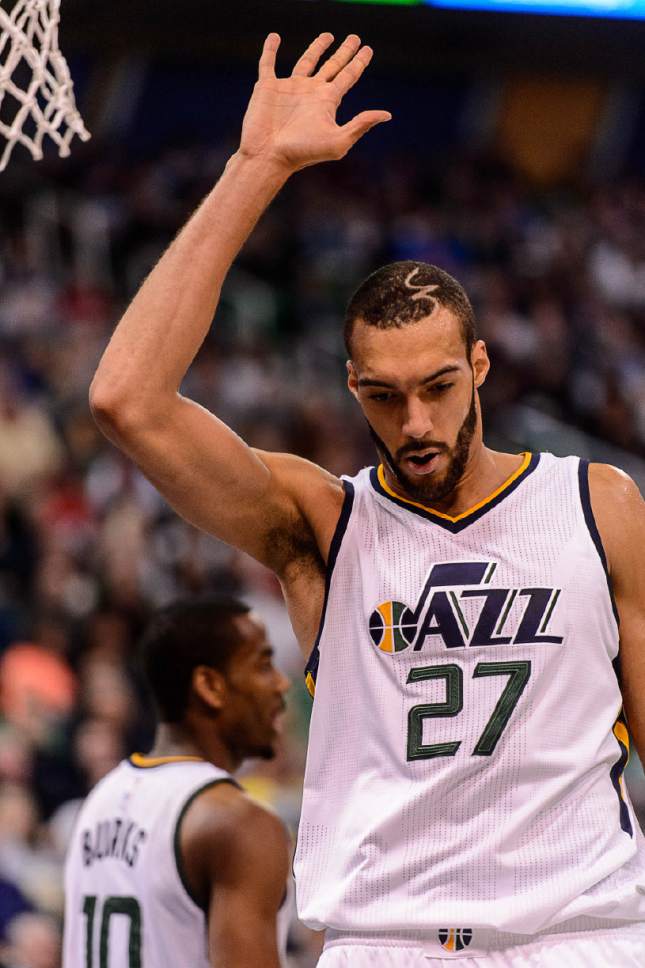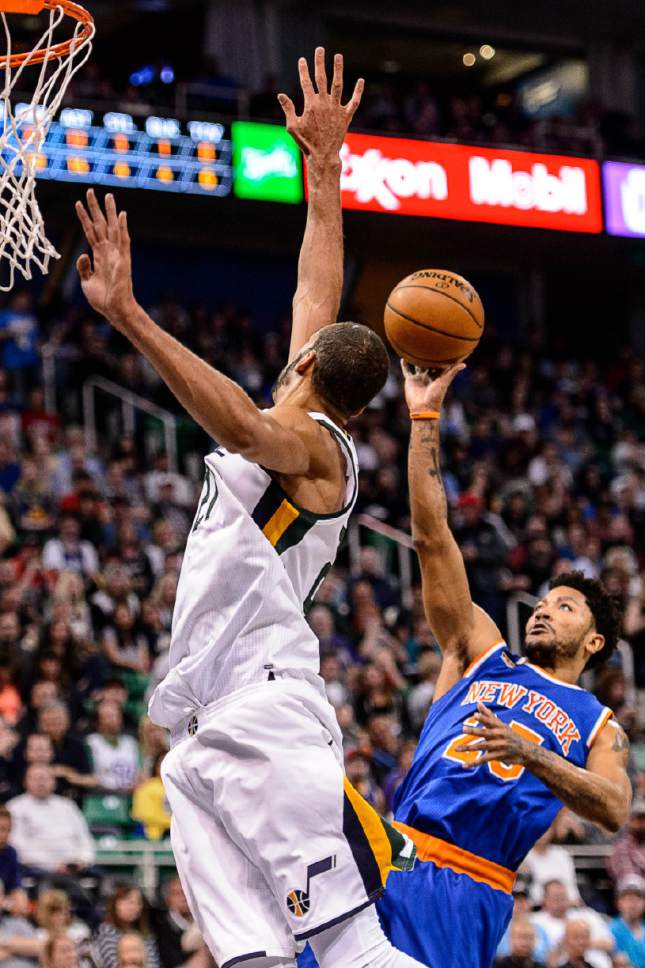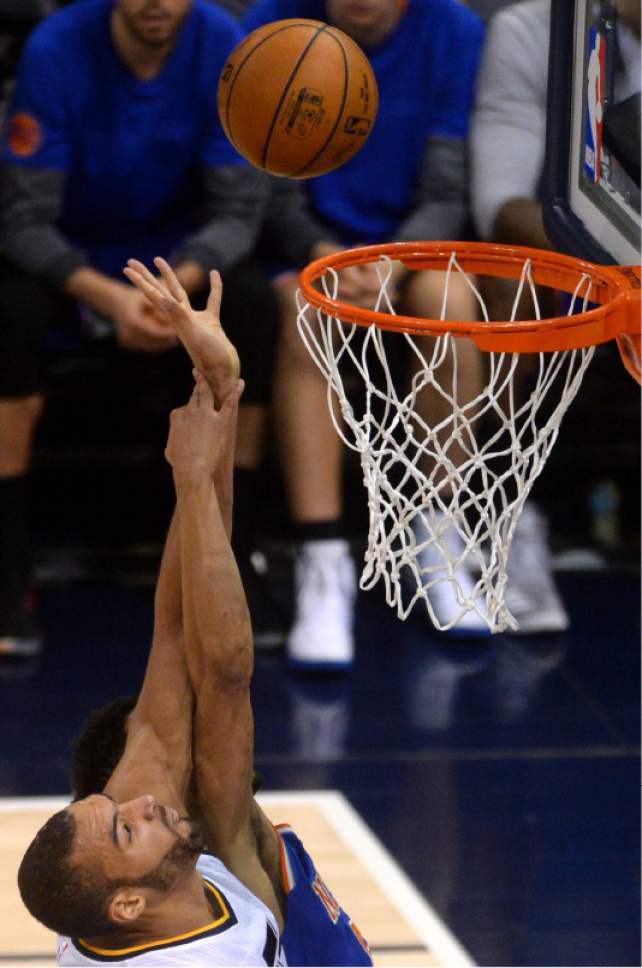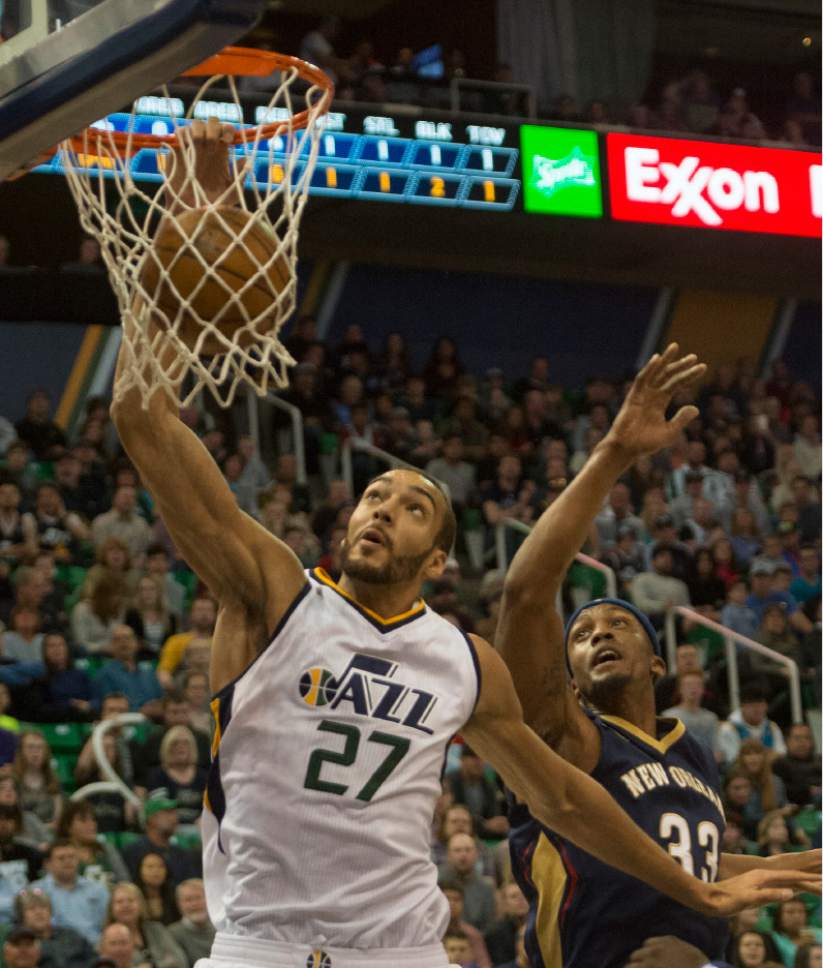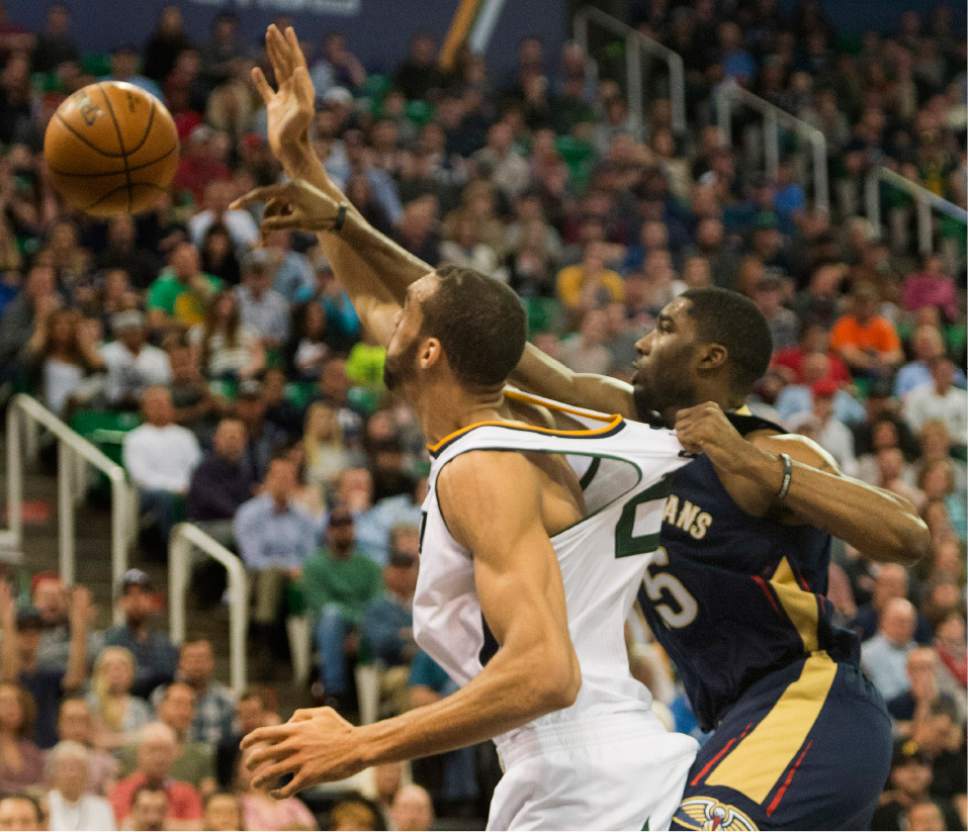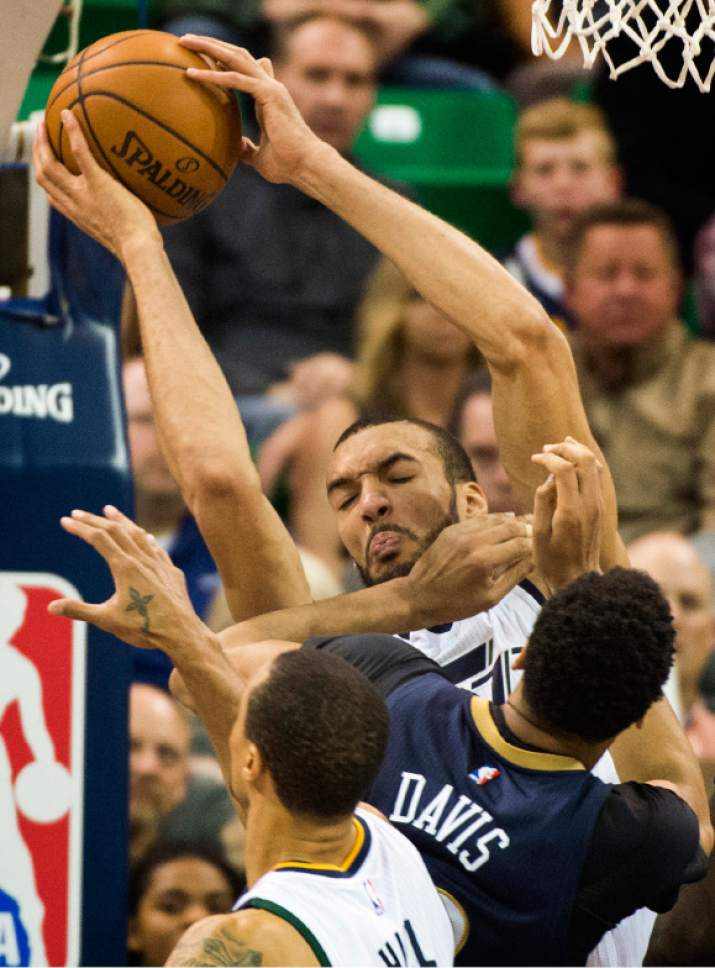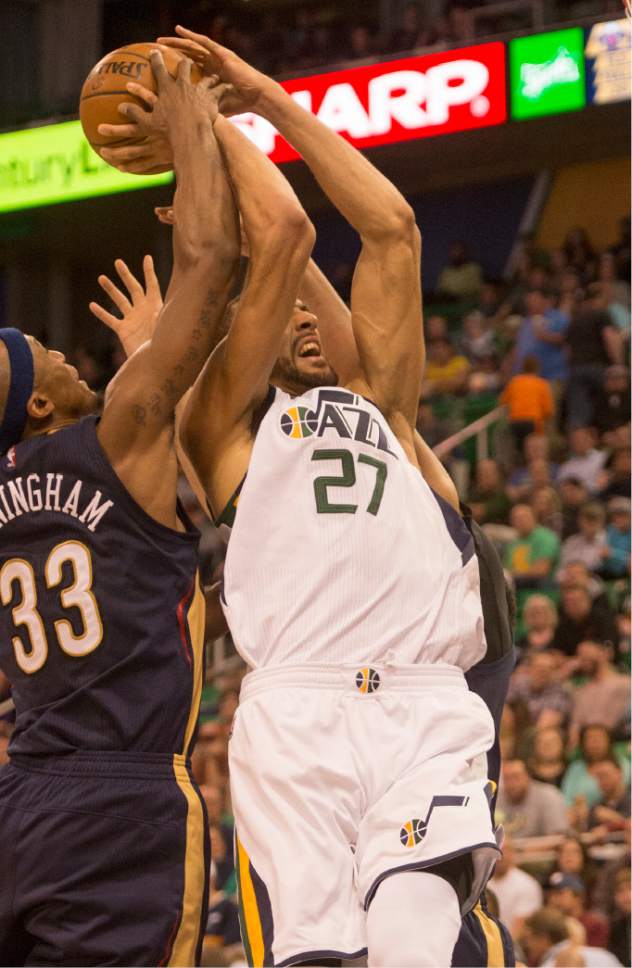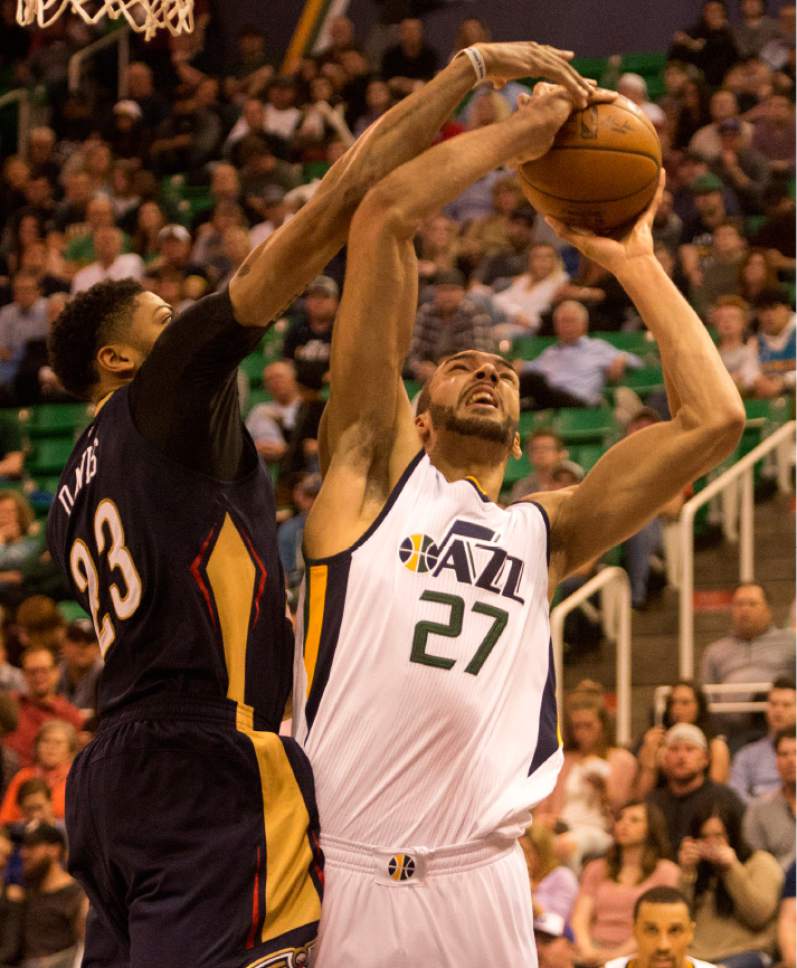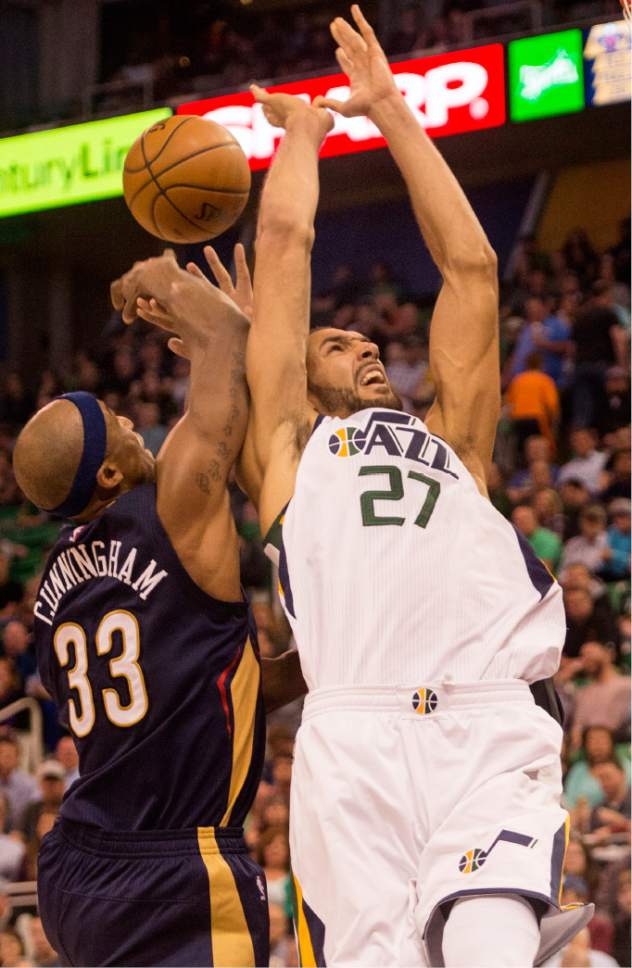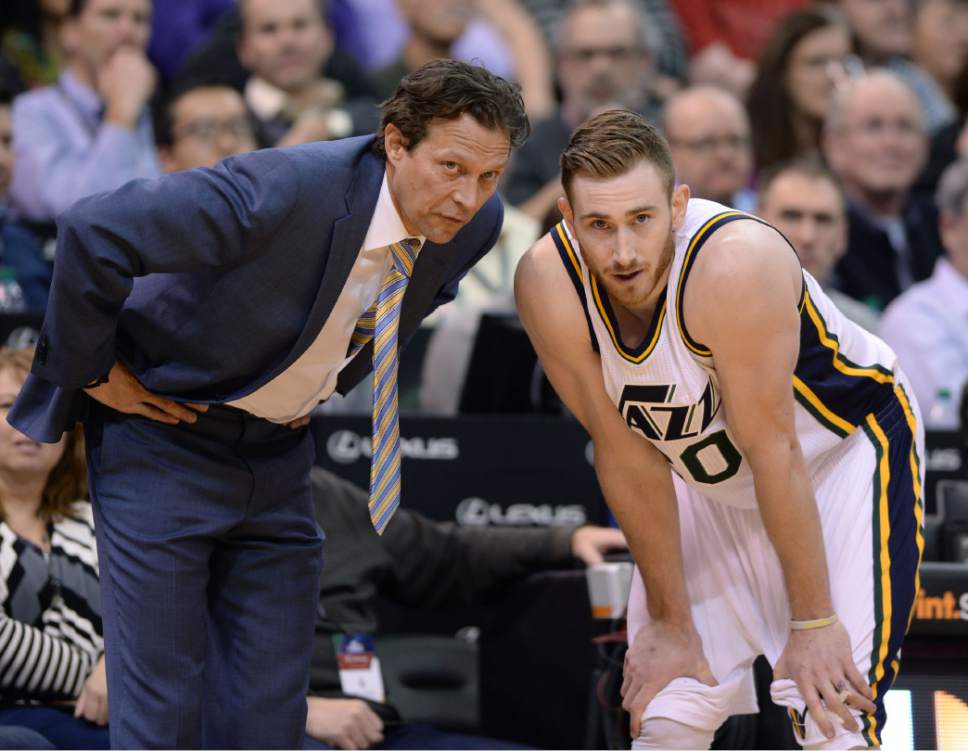This is an archived article that was published on sltrib.com in 2017, and information in the article may be outdated. It is provided only for personal research purposes and may not be reprinted.
A lot of people have taken Rudy Gobert's famous post-Clippers-loss comments, the ones questioning some of his teammates' motivation and competitiveness, all public the way he did, one of three ways:
1) He shouldn't have complained to reporters about his teammates' lack of fire. If he had any problems in that regard, he should have kept them inside the locker room and settled them there. That's real leadership, doing it the right way.
2) He shouldn't have complained to reporters about his teammates' lack of fire, but since he did, it worked out, shoving those teammates forward, giving his sagging team a lift. He did the wrong thing, but was fortunate it turned out right.
3) He speaks English as a second language, so what he said wasn't meant to sound so harsh or to be taken quite the way it was. He was slightly misunderstood.
None of those is correct.
They're all, pardon my French, bull.
Rudy Gobert did the right thing at the right time for the right reason in the right way.
Look at the results since. After losing four of five games, straight into the teeth of a playoff race, punctuated by that substandard performance at Staples Center, disintegrating the way they did at the hands of the team with which they are locked in a race for the home-court advantage in the Western Conference, the Jazz have won three straight games.
They woke up.
And the 24-year-old Gobert sounded the alarm.
He deserved a round of fist bumps, not retribution for what he did and what he said. But he took a scolding from veteran point guard George Hill. He was told what he did wasn't the Jazz's way, wasn't the prim-and-proper way. He apologized to his brothers for his tough love. He is said to have learned from the incident, learned to keep a team's dirty clothes where they belong — in the team hamper.
The best thing he could have learned is this: Let your fire burn, Rudy. Say what's on your mind so everybody can hear it and, just as importantly, feel it.
That may not always be the ideal form, not in every setting. But sometimes it is.
In the competitive world of the NBA, where multimillionaire athletes, who are corporations unto themselves, sometimes grow too insulated from what's real, too satisfied. Despite going up against a steady beat of good teams filled with great athletes, there are occasions when presenting tough words to hear in unvarnished form, not all sweet and circumspect and secret, can be a positive.
And that's what Rudy's were.
He said, in so many words, that the Jazz needed to care about what mattered most, not individuals getting their own, rather sharing the work, sharing the load, sharing the ball, sharing the winning.
And in victories over New Orleans, Sacramento and Washington, that's precisely what the Jazz have done, despite their substantial injuries. The ball has popped on offense, the defense has intensified, the winning has been restored. Whether it will stay that way is yet to be seen, as they now face their most difficult closing run — playing the Spurs and the motivated Blazers twice apiece, along with the Warriors and Timberwolves once apiece.
Not saying that the Jazz will get home court in the playoffs' first round on account of Gobert's bold candor. But without it, they would have had no shot.
Even Quin Snyder, who is a big proponent of communication and who prefers his players communicate person-to-person, without any middleman, admitted to opening his mind enough to consider the beneficial effects of Gobert's public expression.
"A lot of people liked it," said Snyder, who in the aftermath asked around. "There were people I talked to who said, 'Good.' I felt a little bit that way, too. … It's hard to be upset with Rudy's passion."
He added: "We weren't playing with that kind of passion."
There's irony in the argument some have made that a player complaining through the media ruptures trust among teammates. Snyder brought up the notion that, at least in some cases, it's an indication that a foundation of trust is firmly in place, a foundation strong enough to weather a temporary storm of frustration.
He also acknowledged that the level at which Gobert has played over the past couple of months — the Jazz would have lurched without him — gives him license and the pulpit from which to preach. His intelligence and his care-quotient, as Snyder pointed out, is unquestioned. And that's what he spoke with when he said what he said.
Gobert was right. And he was right to say it plain and open. Those who pronounce that he should have saved his message for the inner sanctum neglect to consider that he likely already had expressed those thoughts in those private confines. But after the Clippers loss, he believed he needed to say it again — clear and loud for everyone to hear.
Having the onions to do that, having the competitive burn to do that, having the passion to do that and having the confidence to do it screams of leadership. He was straight challenging his guys, challenging his friends to stand up and be who they can be. He didn't whisper it, he shouted it.
And at that moment in time, that challenge, all raw and flawed, needed to be shouted, needed to be heard.
GORDON MONSON hosts "The Big Show" with Spence Checketts weekdays from 3-7 p.m. on 97.5 FM and 1280 AM. Twitter: @GordonMonson.


